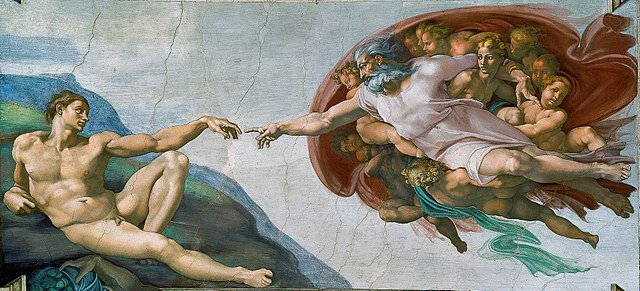The author Brian Camfield, pictured with his son, Jack
As Fathers’ Day approaches, it is natural to wish the dads out there a “Happy Fathers’ Day.” For our Oblate friends and my mentor Father Guerin, they are referred to as “Father” every day. Does one wish them a Happy Fathers’ Day as well? I wasn’t sure and had to honestly think about it. What characteristics make up the best fathers?
I’m past the biological designation of a father. There are many courageous men who decide to become parents through adoption or are step-dads. These fathers devote their lives and livelihoods to make a child’s life better. They provide unconditional love to their kids and absolutely deserve the title of father. Our Oblate friends certainly provide their unconditional love. They are looking out for us and have answered the calling to watch out for all of God’s children.
Fathers are selfless donating their time and energy to help their children. My dad did this when I was growing up and continues to do so into his seventies. He taught me to ride a bike, helped with homework, and helped me sand and paint my first home. After a long work week, the energy isn’t always there but my dad always found a reserve to tap into. He rolled up his sleeves and did whatever it took. When I think of my Oblate mentor, he also exemplified selflessness.
Fathers provide emotional support and encouragement. Just watch any kids’ soccer or baseball game and you will see fathers in the stands cheering on their sons and daughters. In my dad’s case, it was standing ovations for me at high school jazz band and marching band competitions. Think about those in your life who have stood and clapped for you. How can you not smile and feel warm knowing that you have someone on your team? Father Guerin would ask me about my goals and no matter what they were, he would support me in achieving them.
Opposite of cheering you through wins, inevitably, someone is going to lose. The losses in the game of life are especially devastating. Job loss, divorce, or a passing of a loved one can knock the wind out of anyone’s sails and the best fathers are there no matter what. They are always in our corners and are patient with us as we rebuild, lending a helping hand or listening ear through times of grief. I’m so grateful for my dad, Father Guerin, and the Oblates’ support over the years.
So you know by now what the conclusion is. I wish our Oblate priests, friends, and mentors an all caps HAPPY-FATHERS’-DAY and thank-you for all the years and selfless support they give. Of course, this day and every day would not be possible without our heavenly Father. As Jesus taught us in the Lord’s prayer to say, “Our Father, who art in heaven…”
Brian Camfield
Note: Father Guerin passed away in 2017 and is still mentoring me from heaven.































